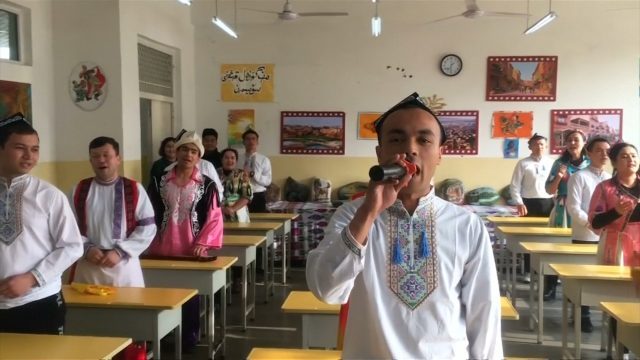News Analysis |
China has once again snubbed the international criticism that it is using coercion against the Muslims majority population of its Xinjiang region. Reiterating what it has been saying for far too long, the Chinese official speaking on the matter termed the camps as a successful venture providing vocational training to the population of Xinjiang region. “Our education and training centers have been set up according to our needs. The students that come in to learn, it’s a dynamic number that changes,” Shohrat Zakir, the chairman of Xinjiang’s government, told journalists on the sidelines of China’s annual parliamentary meeting.
As per a UN report, as much as one million Uighurs are believed to be held in these camps, which China calls as “vocational” while the rest of the world prefers “concentration” as a prefix. Some of the ex-detainees who have spoken to media outlets paint a horrific picture of gruesome torture which they had to face inside these camps for offenses such as keeping a long beard.
The Chinese government, with zero tolerance policy, launched a massive cycle of oppression to keep the separatist movement in the critical region of Xinjiang which borders many countries including Pakistan and Afghanistan at bay.
China recently had allowed the international observers to come to visit these camps with certain preconditions. Speaking of the future of these camps, Shohrat Zakir said, “As a whole, the number of people in the education centers should be less and less, and if one-day society no longer needs it, these education centers can gradually disappear.”
China faced internal security chaos in Xinjiang province by the later part of the 20th century when Han Chinese, who make up the predominant part of the Chinese population, were made to settle in Xinjiang by the Chinese government. The region has a majority Muslim population who trace their lineage back to Turks making them different in origin than the rest of the Chinese people. Massive immigration of Han Chinese led to increasing resentment among the local population which gradually took a violent form.
Read more: Missing Uighurs’ kin demand ‘proof of life’ videos from China
The Chinese government, with zero tolerance policy, launched a massive cycle of oppression to keep the separatist movement in the critical region of Xinjiang which borders many countries including Pakistan and Afghanistan at bay. Recently China has a minor standoff with Turkey over the wellbeing of a Uighur artist which Turkey said had been killed inside a concentration camp, while China endorsed his health to be in perfect shape.
Notorious Blackwater Founder’s Footprint in Xinjiang
Eric Prince, the founder of Blackwater which privatized the Iraq war and led to massive human rights violations by Blackwater operatives is currently active with a Hong Kong-based security firm called Frontier Services Group. FSG, which has Eric Prince also as one of its co-founders, is involved in a project in Xinjiang province where they will be training Police and guards.
He was confronted by Al Jazeera’s Mehdi Hasan in the famous “Head to Head” with the question of why is his frim working in a province alongside Chinese government where gross human right violations pertaining to Uighur Muslims are taking place? Mr. Prince resorted to straightaway denying any such prospect despite Mehdi Hasan showing him the official press release of his company stating the case.
Read more: No place to hide: exiled Chinese Uighurs feel state’s long reach
China is already under immense international pressure for the persecution of Uighurs and acquiring services of people like Eric Prince is only going to make matter worse for both China and the people of Xinjiang province. Due to the broad-spectrum investment of China, many countries are bound and not in a position to take a stand against the oppressed Muslims of Xinjiang, but they have rights equal to any human under subjugation and fraught. It is a collective responsibility of the international community to address the grievances of the population under distress whether it is in Palestine, Kashmir or in Xinjiang China.














